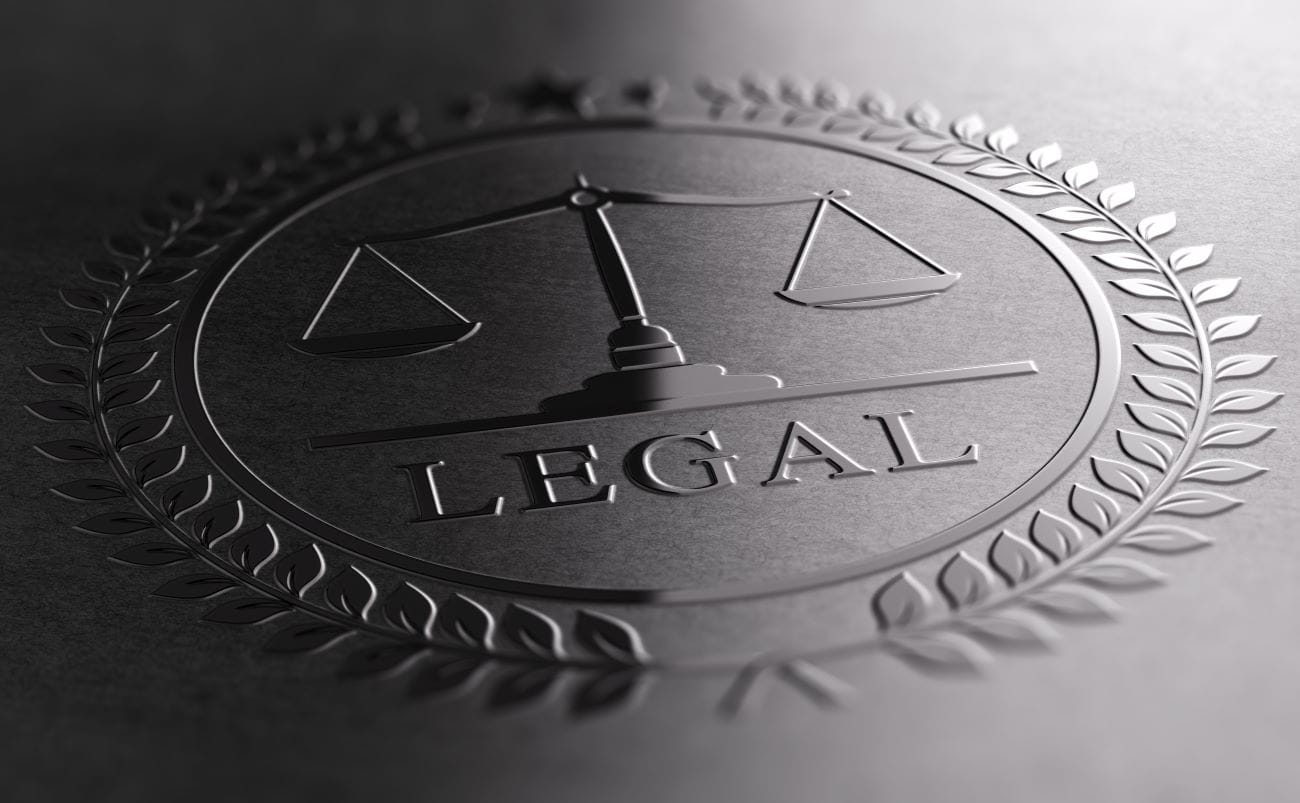
What is Fetal Macrosomia?
As a Fetal Macrosomia Birth Injury Lawyer, I understand that fetal macrosomia refers to a condition where a newborn baby has a significantly higher birth weight than average. Typically, a baby is diagnosed with fetal macrosomia if they weigh more than 8 pounds, 13 ounces (4,000 grams) at birth. Understanding this condition is crucial, as it can lead to various complications during delivery, affecting both the mother and the child.
This condition presents challenges in natural delivery, often necessitating medical interventions such as cesarean sections. Fetal macrosomia is not uncommon, but it requires careful assessment and management by healthcare providers to minimize risks. When managed properly, the potential complications associated with the condition can be mitigated, ensuring the safety of both the mother and the newborn.
Healthcare professionals must be vigilant in monitoring pregnancies with identified risk factors for fetal macrosomia. Early diagnosis and informed decisions regarding the delivery method can significantly reduce the potential for birth injuries associated with this condition. If these precautions are not taken, it may lead to situations of medical malpractice.
Causes of Fetal Macrosomia
Several factors contribute to fetal macrosomia, and understanding these can aid in preventing or managing the condition effectively. One of the primary causes is maternal diabetes, including both gestational diabetes and pre-existing diabetes. High blood sugar levels during pregnancy can lead to excessive fetal growth, resulting in a larger than average baby.
Genetic factors also play a significant role. If one or both parents were large at birth, it increases the likelihood of fetal macrosomia. Maternal obesity and excessive weight gain during pregnancy are additional risk factors, as they can contribute to increased fetal growth. Proper prenatal care and monitoring of maternal weight can help manage these risks.
Additionally, overdue pregnancies, or pregnancies that extend beyond 40 weeks, can result in larger babies. The longer the baby remains in the womb, the more opportunity there is for growth. It is crucial for healthcare providers to monitor these pregnancies closely and consider appropriate interventions if the baby is at risk of becoming macrosomic.

Effects of Fetal Macrosomia on Newborns
Fetal macrosomia can lead to various complications for the newborn. One common issue is shoulder dystocia, a condition where the baby’s shoulders get stuck during delivery. This can cause significant trauma to the newborn, including nerve damage in the shoulders, arms, and hands, known as brachial plexus injury.
In addition to physical injuries, macrosomic babies are at a higher risk of developing metabolic problems, such as low blood sugar (hypoglycemia) shortly after birth. This condition requires prompt medical attention to prevent further complications. Furthermore, these infants may face respiratory difficulties, as their larger size can make the transition to breathing outside the womb more challenging.
Long-term effects of being born macrosomic may include an increased risk of obesity and metabolic syndrome later in life. Monitoring the health and development of these children is vital to address any issues early on. For families affected by these complications, understanding the potential for medical malpractice and the role of a fetal macrosomia birth injury lawyer is essential.

Understanding Medical Malpractice in the Context of Fetal Macrosomia
Medical malpractice occurs when a healthcare provider fails to provide the standard of care expected, resulting in harm to the patient. In the context of fetal macrosomia, this can involve mismanagement of the pregnancy, labor, or delivery process. Recognizing the signs of malpractice is crucial for affected families seeking justice and compensation.
Failure to diagnose or manage fetal macrosomia properly can lead to severe consequences. For instance, if a doctor neglects to monitor a high-risk pregnancy adequately or fails to recommend a cesarean section when necessary, the resulting birth injuries may be grounds for a malpractice claim. Miscommunication among healthcare providers can also contribute to these situations.
Understanding your rights and the legal implications of medical malpractice is vital. A fetal macrosomia birth injury lawyer can help you navigate this complex area of law, ensuring that you receive the support and compensation you deserve. They can guide you through the process of identifying negligence and building a strong case.

The Role of a Birth Injury Lawyer in Fetal Macrosomia Negligence Cases
A birth injury lawyer specializing in fetal macrosomia cases plays a crucial role in advocating for families who have experienced medical malpractice. These legal professionals possess the expertise to analyze medical records, consult with medical experts, and build a compelling case on your behalf. Their goal is to secure the compensation necessary for medical expenses, rehabilitation, and other associated costs.
One of the primary responsibilities of a birth injury lawyer is to establish that a breach of duty occurred. This involves demonstrating that the healthcare provider failed to meet the accepted standard of care, resulting in injury to the newborn. By gathering evidence and expert testimony, your lawyer can help prove negligence and hold the responsible parties accountable.
Additionally, a birth injury lawyer can assist you in navigating the legal process, which can be overwhelming for families already dealing with the emotional and financial burdens of a birth injury. They will guide you through each step, from filing the claim to negotiating settlements, ensuring that you have the best chance of achieving a favorable outcome.
Identifying Fetal Macrosomia Negligence Situations
Identifying negligence in fetal macrosomia cases requires a thorough understanding of medical standards and practices. Negligence can occur at various stages, from prenatal care to postnatal treatment. A key aspect is determining whether the healthcare provider failed to take appropriate action when risk factors for fetal macrosomia were present.
In many cases, negligence involves inadequate monitoring of the mother’s health and the baby’s growth during pregnancy. If a provider fails to order necessary tests, such as ultrasounds to estimate fetal size, they may be held accountable for any resulting injuries. Additionally, failure to recommend or perform a cesarean section when necessary can also constitute negligence.
To successfully identify negligence, your legal team will collaborate with medical experts who can offer insights into the standard of care expected in such situations. These experts can testify on whether the care provided deviated from accepted medical practices, strengthening your case against the responsible parties.

How to Build a Case for Fetal Macrosomia Medical Malpractice
Building a compelling case for fetal macrosomia medical malpractice requires meticulous preparation and a strategic approach. The process begins with a comprehensive review of medical records, which serve as crucial evidence in establishing negligence. Your lawyer will work with medical experts to analyze these records and identify any deviations from the standard of care.
Gathering testimony from witnesses, including healthcare professionals involved in the delivery, is another essential step. These testimonies can provide valuable insights into the decisions made during labor and delivery. Additionally, expert witnesses can offer opinions on the expected standard of care, further supporting your claim of negligence.
Documenting the impact of the birth injury on your family is also critical. This includes detailing the medical treatments required, ongoing care needs, and any emotional or financial burdens experienced. A well-documented case will not only help in securing compensation but also in advocating for changes in medical practices to prevent future incidents.

The Importance of Expert Testimony in Fetal Macrosomia Cases
Expert testimony is a cornerstone of any medical malpractice case, particularly in complex situations like fetal macrosomia. These experts provide an objective evaluation of the medical care provided, helping to establish whether the healthcare provider met the expected standard of care. Their insights can significantly influence the outcome of your case.
In fetal macrosomia cases, expert witnesses may include obstetricians, pediatricians, and other specialists familiar with the management of high-risk pregnancies. Their testimony can clarify whether the healthcare provider took appropriate measures to diagnose and manage the condition, such as monitoring fetal growth and recommending necessary interventions.
The credibility and expertise of these witnesses are critical in persuading the court or insurance companies to acknowledge negligence. By partnering with a fetal macrosomia birth injury lawyer, you can ensure that the right experts are selected to strengthen your case and improve your chances of a successful outcome.

Navigating the Legal Process: Steps to Take After a Birth Injury
Navigating the legal process after a birth injury can be daunting, but understanding the necessary steps can help you move forward with confidence. The first step is to consult with a qualified birth injury lawyer who specializes in fetal macrosomia cases. They will assess your situation, provide legal advice, and guide you through the process of filing a claim.
Once you have engaged a lawyer, the next step involves gathering evidence to support your case. This includes obtaining medical records, witness statements, and expert opinions. Your lawyer will handle this process, ensuring that all necessary documentation is collected and organized effectively.
Throughout the legal process, maintaining open communication with your lawyer is essential. They will keep you informed of any developments and advise you on the best course of action. By taking these steps, you can navigate the legal system more effectively and work towards achieving justice for your family.
Support for Parents Affected by Child Birth
Support Groups:
- Birth Injury Guide
- Birth Trauma Support
- Birth & Trauma Support Group
- Peer Support Groups – PTSD: National Center for PTSD – VA.gov
National Organizations:
- Disability Rights Advocates
- Easterseals Nonprofit Organization | Easter Seals
- Project Hope
- National Healthy Start Association: Helping Babies, Parents …
- Nemours Children’s Health System
- National Association of Parents with Children in Special Education
- Federation for Children with Special Needs
Birth Injury Centers:
- Birth Injury Center
- Pregnancy, Birth and Baby
- The Birth Trauma Association
- https://www.facebook.com/childbirthinjuries/
Additional Online Support Groups:
- Birth Injury Justice Center
- Birth & Trauma Support Group
- Birth Injury Center
- DailyStrength
- Birth Trauma Association: parent support group
- NICU Parent Resources | Support After Traumatic Birth
- Birth Defect Research for Children
- Services Birth Trauma
- CPTSD Peer Support Chat Group
- Birth Injury Center Youtube Channel
- Resources for Mothers
Spinal Cord Support Groups:
- Spinal Cord Injury Support Group
- Spinal Cord Injury Support Groups
- Vanderbilt Physical Medicine and Rehabilitation
- Support Groups – MSCIA
- Spinal Cord Injury Associations & Organizations (USA)
- Spinal Cord Injury Discussion and Support Group
- Support Groups at the Center for Spinal Cord Injury
- Better Together: Spinal Cord Injury Support Groups
- https://www.youtube.com/c/BirthInjuryCenter
Trauma Support Groups::
- March of Dimes
- Birth Trauma Support
- BPI & Erb’s Only Support Group.
- BIRTH TRAUMA RESOURCES
- Birth & Trauma Support Group
- https://www.facebook.com/groups/TheBTA/
- Trauma and PTSD Support Groups in Nashville, TN
- Support Groups – TSN 2025
- Trauma Process Group
- Birth Injury – Birth Trauma
- Postpartum Support groups
- Birth Trauma – PANDAS Foundation UK
Cerebral Palsy Support Groups:
- Cerebral Palsy Guidance
- United Cerebral Palsy (UCP)
- Cerebral Palsy Support Group
- Cerebral Palsy Family Network
- Birth Injury Support Groups: Finding Your Tribe
- The Mayo Clinic
Erb’s Palsy Support Groups:
- treatments for Erb’s palsy
- Erb’s Palsy Group
- Brachial Plexus Nerve Injury and Erbs Palsy Support Group: UBPN
- Erb’s Palsy Group CIO (@erbspalsyuk)
Brachial plexus Support Groups:
- United Brachial Plexus Network (UBPN)
- Brachial Plexus Nerve Injury and Erbs Palsy Support Group: UBPN
- BPI & Erb’s Only Support Group.
- Support Group For Erb’s Palsy (@erbspalsyfriends)
- United Brachial Plexus Network
Brain Injury Support Groups:
- Brain Injury Support Group
- Office of Acquired Brain Injury (OABI)
- Comprehensive Rehabilitation Services (CRS) Program
- Brain Injury Association of America
- Traumatic Brain Injury Support Groups
- brainline.org
- Brain Injury Association of Tennessee
- braininjuryhope.org
- Traumatic Brain Injury Services
Preeclampsia Groups:
- Preeclampsia Foundation
- HELLP Pre-Eclampsia Survivor Group
- Support during and after pre-eclampsia
- Preeclampsia, Eclampsia & HELLP Syndrome Survivors …
- March of Dimes
- Preeclampsia Foundation Community Connection
- About AAPEC
Fetal Macrosomia:
Conclusion: Seeking Justice for Fetal Macrosomia Injuries
Seeking justice for injuries related to fetal macrosomia is a challenging but essential endeavor. By understanding the medical and legal aspects of this condition, you can better advocate for your rights and the wellbeing of your child. Partnering with a qualified birth injury lawyer is crucial in navigating the complexities of medical malpractice cases.
Remember, you are not alone in this journey. A fetal macrosomia birth injury lawyer can provide the guidance and support you need to hold healthcare providers accountable and secure the compensation necessary for your child’s care. By taking action, you can help prevent similar incidents in the future and promote safer medical practices.
If you or a loved one has been affected by fetal macrosomia, don’t hesitate to seek legal advice. Reach out to a specialized lawyer today to discuss your case and explore your options. Your actions can make a difference, not only for your family but for others who may face similar challenges.
If you suspect medical malpractice in a fetal macrosomia case, contact a qualified *fetal macrosomia birth injury lawyer* today. They can provide the expertise and support needed to navigate this challenging situation. Don’t wait to seek the justice and compensation your family deserves.
Contact Fetal Macrosomia Birth Injury Lawyer Timothy L. Miles Today for a Free Case Evaluation
Contact Fetal Macrosomia Birth Injury Lawyer Lawyer Timothy L. Miles if you believe you or your child suffered Fetal Macrosomia medical malpractice for a free case evaluation today. The call is free and so is the fee unless we win or settle your case so call today and see what a Fetal Macrosomia Birth Injury Lawyer can do for you. (855) 846-6529 or [email protected].
Timothy L. Miles, Esq.
Law Offices of Timothy L. Miles
Tapestry at Brentwood Town Center
300 Centerview Dr. #247
Mailbox #1091
Brentwood,TN 37027
Phone: (855) Tim-MLaw (855-846-6529)
Email: [email protected]
Website: www.classactionlawyertn.com





